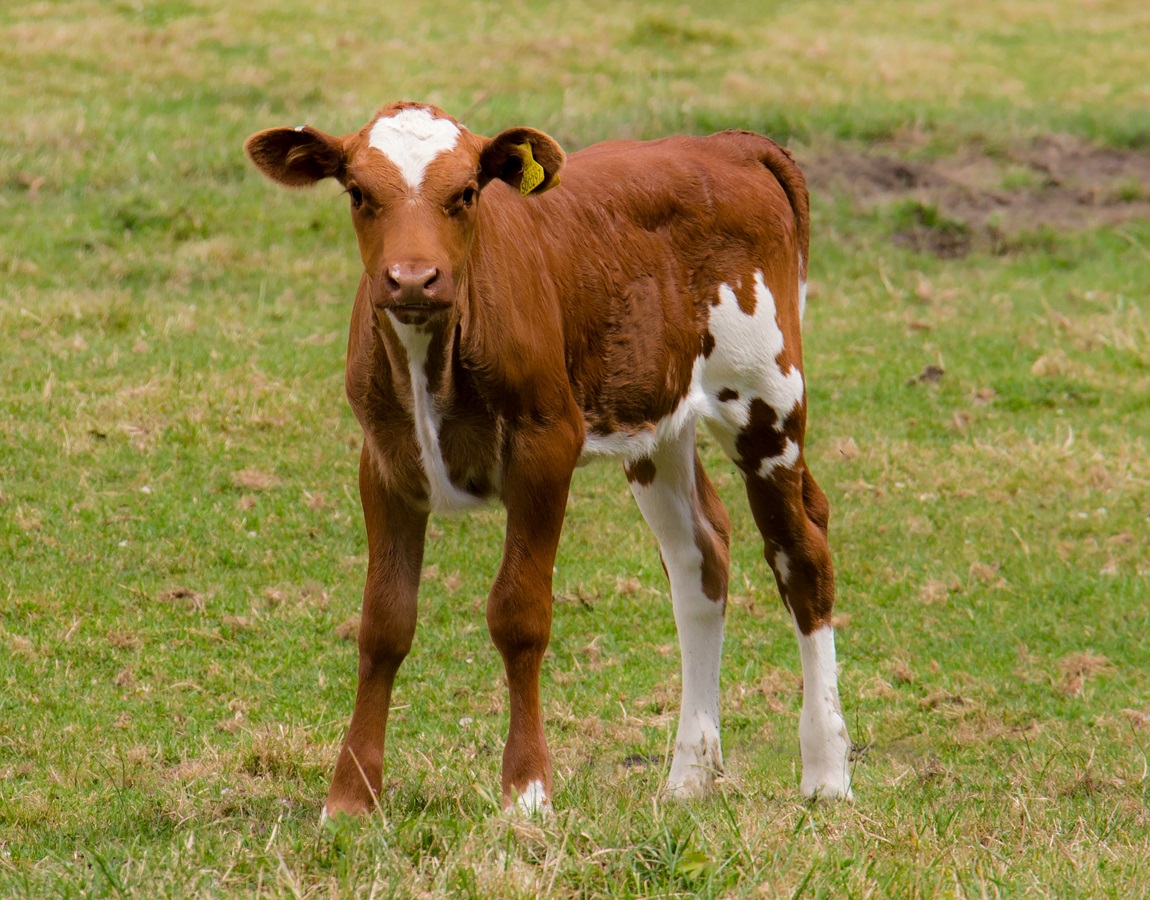
First Gene-edited Calf Developed to be Less Susceptible to BVDV
December 14, 2022| |
The first gene-edited calf intended to be less susceptible to the bovine viral diarrhea virus (BVDV) was found to be normal and healthy at 16 months, with no obvious effects from the on-target edit.
The live gene-edited calf with six amino acid substitution in the BVDV binding domain of bovine CD46 gene was produced using CRISPR-mediated homology-directed repair and somatic cell nuclear transfer. An 18-nt replacement in the CD46 gene was used to make a homology-directed repair, while somatic cell nuclear transfer was used to produce the calf to avoid the introduction of off-target modifications and disruption of the predicted tertiary structure of the protein or its expression levels.
Susceptibility challenge studies conducted suggest that the edit could be useful for reducing BVDV susceptibility in cattle. The researchers from the United States who developed the calf measured the CD46-dependence of diverse cell types from the skin and internal organs and found significant reduction in BVDV susceptibility. They also found strong reduction in both the duration and peak viral RNA load in the blood of the calf, which was consistent with reduced viral replications in tissues in vivo, suggesting that the calf remained uninfected throughout the challenge.
The development of the gene-edited calf is very promising to address BVDV, but the researchers recommend future studies to determine whether CD46-edited bovine dams are able to protect developing fetus from transplacental BVDV infection through experimental replication in different bovine animals.
More details in bioRxiv.
| |
You might also like:
- Genetic Find Might Lead to More TB Resistant Cattle
- Scientists Analyze Whole Genome Sequence of Water Buffalo, Cattle for Domestication Signatures
- Hornless Cattle Now Possible Thanks to Genome-editing
Biotech Updates is a weekly newsletter of ISAAA, a not-for-profit organization. It is distributed for free to over 22,000 subscribers worldwide to inform them about the key developments in biosciences, especially in biotechnology. Your support will help us in our mission to feed the world with knowledge. You can help by donating as little as $10.
-
See more articles:
-
Gene Editing Supplement (December 14, 2022)
-
Research and Tools
- Low-cadmium Rice Developed Using CRISPR-Cas9
- Study Reveals Role of Wild Soybean Protein Kinase in Abiotic Resistance of Plants
- The Volcani Center Researchers Develop Gene-Edited Hens to Stop Male Chicken Slaughter
- First Gene-edited Calf Developed to be Less Susceptible to BVDV
- Scientists Find New Compact Genome Editors in Viruses
-
Policy Considerations and Approvals
- European Academies Form Task Force on Intellectual Property System for NGTs
-
Read the latest: - Biotech Updates (February 11, 2026)
- Gene Editing Supplement (January 28, 2026)
- Gene Drive Supplement (February 22, 2023)
-
Subscribe to BU: - Share
- Tweet

